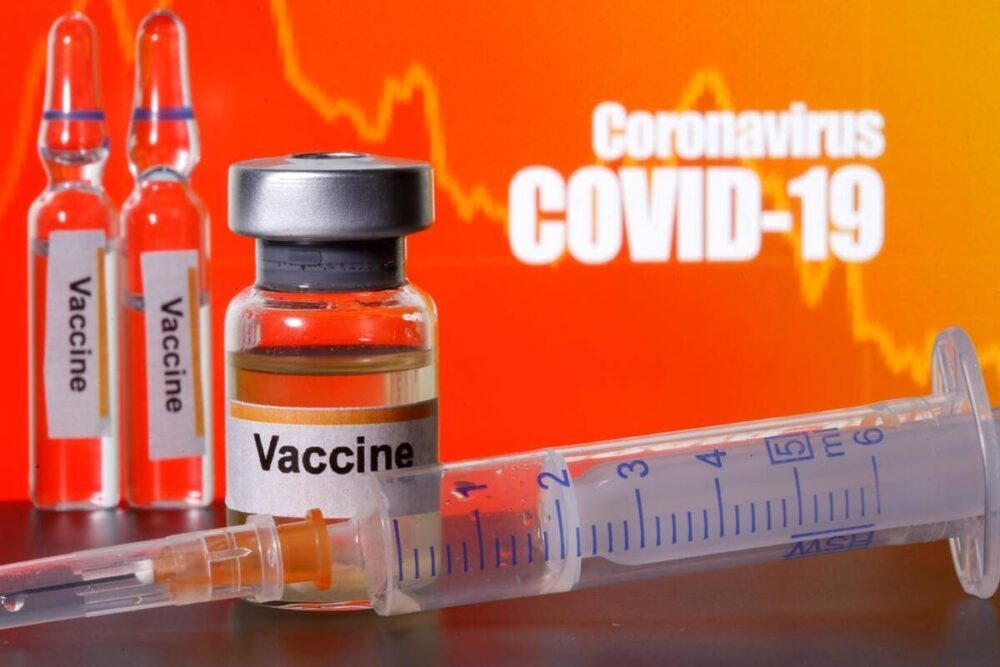India, which has the second-largest population in the world, is badly affected by this pandemic. As the cases of covid in India have crossed over 92 lakh with around 37,000 cases being reported almost every day. In the middle of this, there are about 100 vaccine candidates which are continuously working in various stages of development across the country with different technologies.
While many countries have started to pre-buy vaccine stocks but India has taken a ‘wait and watch’ approach. The key question which rises is on vaccine availability, its mode of administration, and storage requirements in India.
Dr. K Srinath Reddy, president of the Public Health Foundation of India (PHFI) said in an interview that “the speed of development is a response to the pandemic that has unsettled health and economy across the world”. He also added that “when we develop something with this speed and launch it into public use. Two potential areas of concern are that safety may be overlooked in the search for efficacy, and the second concern is whether the duration of protection is correctly assessed.”
According to the WHO vaccine alone cannot end the pandemic, and the AIIMS Director also said that vaccine will hopefully be available in 2022 for the average citizen who is not among the priority groups.

1. Serum Institute- Covishield
This oxford-AstraZeneca vaccine is being made in partnership with Serum Institute. Covishield will be likely available by April 2021 as Covid-19 vaccine which will offer protection up to 90 percent in one dosage regime and 62 percent in another and combined analysis has an average efficacy of 70 percent without any serious side effects.
The Serum Institute of India along with the Indian Council of Medical Research is conducting its phase 2/3 trial on a range of hundred to thousands of participants across 25 different sites in India. It has completed the registration of 1,600 participants on 31 October.
The SII has already produced 40 million doses of the vaccine after the DCGI nod. The good news about this vaccine is that it is better tolerated in older people than younger ones as the older adults are more vulnerable to Covid-19.
2. Moderna-mRNA-1273
mRNA -1273 was the first covid vaccine that has been released for human trials in March, this year. This mechanism is based on the mRNA platform that protects the body by recognizing the virus and boosting the immune system.
The first interim showed that the vaccine has 94.5 efficacy with no side effects and more than 30,000 participants enrolled themselves which was conducted in collaboration with the National Institute of Allergy and Infectious Disease and several other organization.
This vaccine is expected to cost around Rs 2,600 and it has to be stored at a temperature range of 2 to 8 degrees Celsius.
3. Pfizer-BNT162b2
In the midst of this pandemic as everyone was waiting for good news about a vaccine, US pharma giant Pfizer and its German partner BioNtech gave a silver lining when they announced that their vaccine candidate BNT162b2 and also an mRNA vaccine had shown the efficiency of 95 percent in the final clinical trial.
In 2020, the Company expects to produce about 50 million vaccines globally and about 1.3 million in 2021. But there is no clarity when this vaccine will reach India. The main problem with its transportation and storage is that it needs to be stored at a temperature of -80 to -90 Celsius.
4. Russia-Sputnik V
Russian government’s Gamaleya Center and the Russian Direct Investment Fund developed its vaccine Sputnik in August which became the first Covid vaccine to be registered.
This vaccine was found to be 92 percent effective in Covid cases with no adverse effects after its first interim analysis.
The RDIF has contracted with international partners to produce 500 million doses of this vaccine annually. But there is no clarity when it will be seen in the market and how much this vaccine will cost.
5. Bharat Biotech – Covaxin
Indian first Indigenous Covid -19 vaccine by Bharat Biotech which is developed in collaboration with the Indian Council of Medical Research has entered into its third phase trial with 26,000 participants across 25 centres in India.
This vaccine which is expected to be available in 2021 has a price even less than a water bottle. Phase 1 trial of this vaccine has resulted in adverse effects in one of the participants but the company claims it was not due to the vaccine and the patient is absolutely fine.
6. Zydus Cadila-Zycov D
Cadila, among India’s top 10 drugmakers is all set to release its drug to treat the severe patients of Covid-19. No adverse effects were observed on the vaccine candidate in a repeated dose according to toxicology studies which involve both intramuscular and intradermal routes for administration.
The company will be enrolling over 1,000 subjects across different sites in India and it aims to complete the trial of the vaccine by March, next year.
7. Gennova Biopharmaceuticals’ Covid Vaccine
India-based pharmaceutical company Gennova Biopharmaceutical in collaboration with HDT Biotech Corporation, USA is working together to develop an mRNA vaccine at the end of 2020 or early 2021. Speed of mRNA technology has been already proven during the COVID-19 outbreak as mRNA candidate was the first to enter the human trial globally. This will not only empower India to handle this pandemic but also ensure the preparedness for any future pandemic.
8. Biological E-Ad26.COV2.S
Indian drugmaker company Biological E Ltd. has entered into an agreement with Janssen Pharmaceutical NV, part of pharma major Johnson and Johnson, for the enhancement of production capabilities to manufacture the latter’s COVID-19 vaccine.
This vaccine is derived from an adenovirus vector, but what makes it more unique is that this is a single-dose vaccine.
The companies have begun its combined phase 1 and 2 clinical trials of its covid vaccine on about 360 subjects aged 18-65 because they wanted to directly evaluate four different formulations depending on different antigen strengths in India following DGCI’s nod. The vaccine is likely to be available at the end of January.
Follow our Health & Care section for more information like this.












